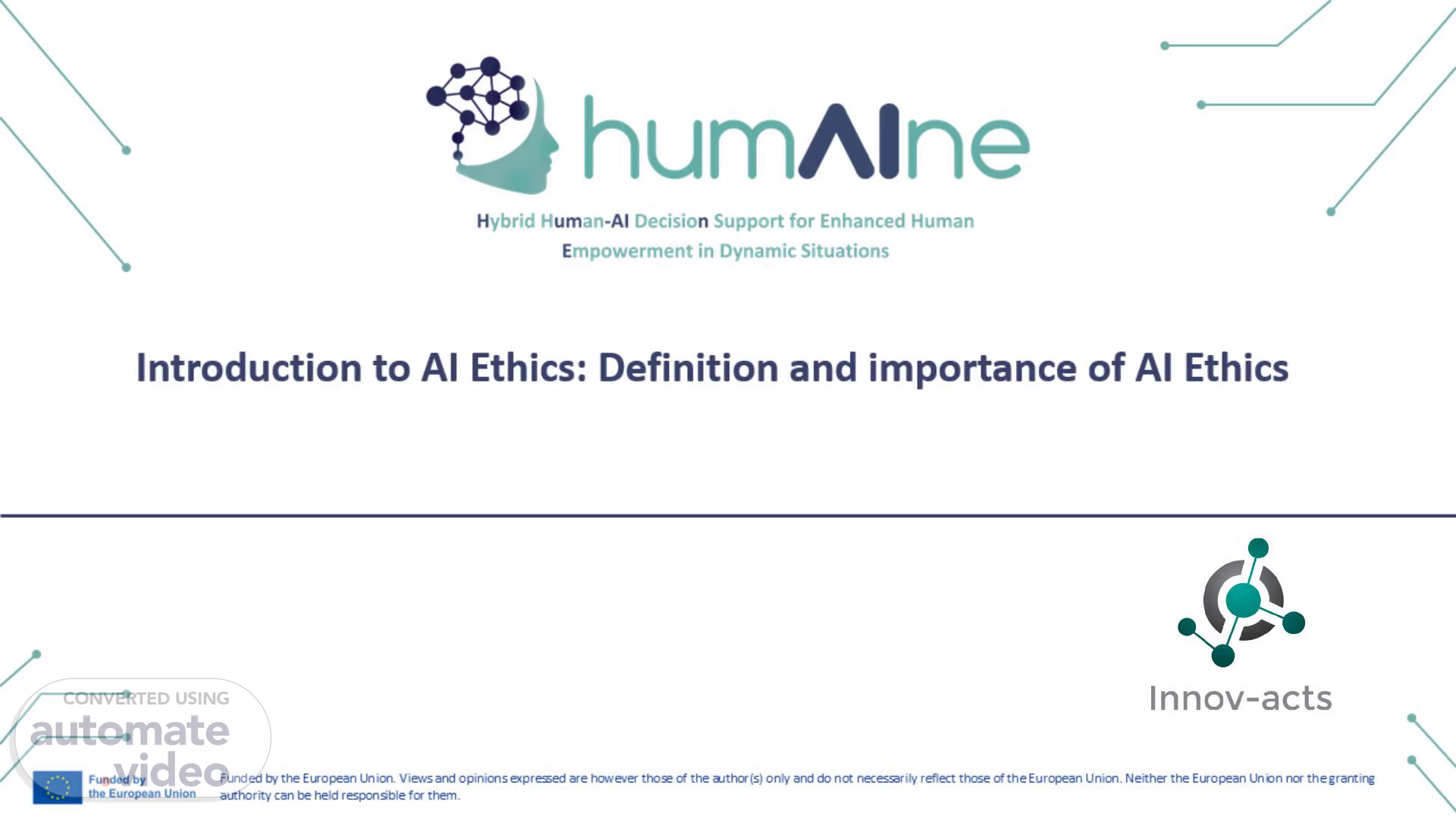
Introduction to AI Ethics: Definition and importance of AI Ethics
Scene 1 (0s)
[Audio] Introduction to AI Ethics: Definition and importance of AI Ethics.
Scene 2 (8s)
[Audio] AI Ethics refers to the moral principles that guide the development and use of artificial intelligence. As AI technology becomes more advanced and embedded in our daily lives, understanding its ethical implications is essential. This ensures we can navigate both its benefits and its risks effectively..
Scene 3 (32s)
[Audio] The primary goal of AI ethics is to ensure that AI systems serve humanity's best interests while minimizing harm. This means developing AI that is safe, fair, and accountable, promoting trust among users and stakeholders. AI ethics isn't limited to one discipline. It draws from various fields such as computer science, philosophy, sociology, law, and psychology. This multidisciplinary approach allows us to address ethical concerns from multiple perspectives..
Scene 4 (1m 10s)
[Audio] Key principles of AI ethics include promoting transparency and fairness, protecting privacy, and safeguarding human rights. These principles ensure AI systems are designed with accountability and safety in mind, while considering their long-term societal impact..
Scene 5 (1m 32s)
[Audio] One of the most critical challenges in AI is addressing bias and discrimination. AI systems often learn from historical data, which can reflect and even amplify existing societal biases. Ethical AI practices focus on identifying and minimizing these biases to ensure fair and equal treatment for all. This means creating systems that are inclusive, respectful, and free from harmful stereotypes. AI systems require access to vast amounts of data to function effectively, but this raises serious privacy concerns. Ethical guidelines emphasize the importance of safeguarding personal information, obtaining consent, and using data responsibly. This ensures that individuals remain in control of their personal data and that AI doesn't compromise their privacy. Another essential principle is accountability and transparency. AI decisions should not be a black box. Users have the right to understand how decisions are made and why. Ethical AI ensures that systems are explainable and that there is a clear line of accountability when things go wrong. Transparency builds trust and allows users to challenge or question AI-driven outcomes. AI should enhance human decision-making, not undermine it. Respecting human autonomy means designing systems that support people, giving them control rather than taking it away. Ethical AI focuses on ensuring that humans remain at the center of important decisions, with AI serving as a tool to assist rather than dictate. Finally, security and safety are crucial in AI development. These systems must be designed to prevent unauthorized access and protect against malicious use. Ethical AI includes measures to safeguard both the technology and the people who rely on it. This reduces the risk of harm and ensures that AI applications remain secure and reliable..
Scene 6 (3m 53s)
[Audio] In conclusion, AI ethics is essential for the responsible and equitable development of AI. When properly addressing concerns related to trust, fairness, privacy, and safety, modern businesses can promote AI technology that benefits society as a whole, while at the same time minimizing AI risks..
Scene 7 (4m 19s)
Thank you for your attention!. humaine-horizon.eu.